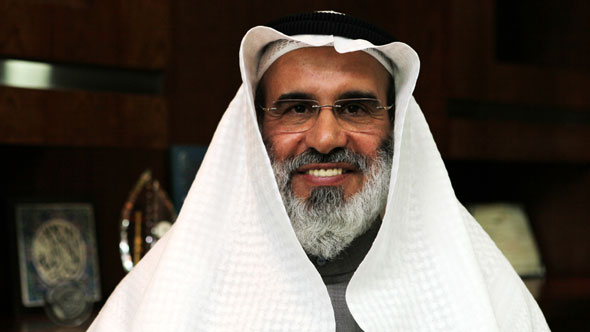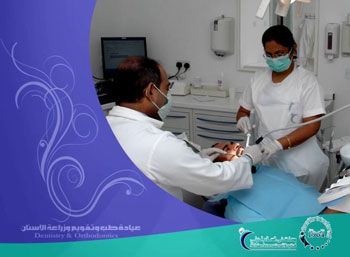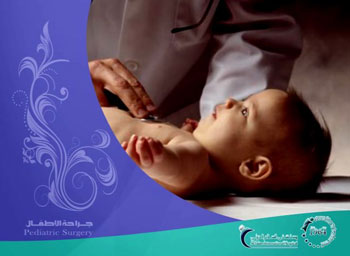High Quality Healthcare in Kuwait
Interview with Dr. Tareq Al Mukhaizeem, Chairman and Managing Director of Al Salam International Hospital. Dr. Al Mukhaizeem talks about the needed changes in the regulations of the healthcare system in Kuwait. Healthcare system and services in Kuwait are of high quality. Al Salam International Hospital is a leader in excellence and a provider of high quality healthcare in Kuwait.

What is your general assessment of the healthcare sector in Kuwait, what are the differences between private and public sectors, what are some of the challenges faced?
In any society, healthcare should be supported by the government and the private sector. But the primary need for good quality and safe healthcare is cooperation between the two parties. There is a statistic that states about 20% of the population of Kuwait is not utilizing healthcare facilities – they don’t need healthcare at all – this is the young segment of the population of Kuwait. Another 20% need hospital care while 60% of the Kuwaiti population require primary healthcare.
I think to be cost-effective, we should take care of the primary healthcare services, which is very important because it is less costly and more effective than increasing the budget of hospitals.  Now in Kuwait and most countries, there is investment in hospitals. To invest in primary healthcare, both preventative and curative, is more profitable to any society, but investment is greater now in hospitals! A lot of times, the society is in more need of good primary healthcare, and not more hospitals. I think Kuwait should invest more in primary healthcare to minimize the need for hospitals.
Now in Kuwait and most countries, there is investment in hospitals. To invest in primary healthcare, both preventative and curative, is more profitable to any society, but investment is greater now in hospitals! A lot of times, the society is in more need of good primary healthcare, and not more hospitals. I think Kuwait should invest more in primary healthcare to minimize the need for hospitals.
What other ideas do you think are necessary to suggest to the government of to improve the quality of services in Kuwait?
After improving primary healthcare units, there should be very strict rules where no case should go directly to hospitals; they should go through primary healthcare units to minimize the load on hospitals, so hospital service can be of the highest quality. What is happening now in Kuwait is that hospitals are overcrowded, and patients aren’t getting the care of a proper quality in the proper time. There are very long queues.
In Kuwait, there is no insurance for people! There should be an insurance scheme to cut the costs of healthcare for citizens and foreigners. Insurance would help control expenses and improve the quality of service, unlike now where there is abuse because everything is free and accessible.
Do you think medical tourism will be developed in Kuwait in the future, especially targeting citizens from the other GCC countries?
Very minimally, because the other GCC countries also have very well-developed private and governmental sectors. The regulation should be changed in Kuwait giving more freedom to the private sector to develop itself.
In Kuwait, there is no insurance for people! There should be an insurance scheme to cut the costs of healthcare for citizens and foreigners. Regulations should stipulate that patients should pay some fees in order to not abuse services. Insurance would help control expenses and improve the quality of service, unlike now where there is abuse because everything is free and accessible.
We notice a trend of big companies sending their employees abroad for healthcare. There is still a perception among Kuwaitis that services abroad are of better quality than those offered in Kuwait. Is this just a perception, or  are they right that the quality abroad is really better?
are they right that the quality abroad is really better?
Yes, big companies in the oil sector, and even the government, often send employees abroad for medical services. Most of the time, this is not because of a true need for services unavailable in Kuwait, but because of political reasons. They want to satisfy some parliament members, for example. The private and public sectors really have high quality healthcare services, offering many specialties.
What is your strategy for the medium and long term? What would you like to achieve, and how would you like to grow?
We have done feasibility studies for expansion in Kuwait, mainly Ahmadi province, because there are more citizens there. Actually, those who are using the private sector the most are Kuwaitis or insured non-Kuwaitis. We have a program for visiting doctors from outside Kuwait, mainly from the US and Europe. Right now we have a visiting doctor for shoulder surgeries.
We need to be known by high safety and high quality. We are not to be recognized by a single doctor, but by the whole system. We are developing all specialties, surgery, pediatrics, OB-GYN, to very high standards. We want patients to come to Al Salam not for individual doctors, but for the entire hospital system.
What about waiting times for patients?
These days, between September and January, we are full and cannot accommodate more in-patients. We are well-known for surgeries – especially regarding the obesity (e.g. laparoscopic sleeve gastrectomy) and daily we are  performing between 10 and 15 cases.
performing between 10 and 15 cases.
Are there any issues that are a cause of concern for you?
The most important issue, as I mentioned before, is to improve the regulations of the Ministry of Public Health. Most of our work requires permission from the Ministry, regarding residencies, or interview with new doctors, for example.
These processes need to be shortened because it takes up a lot of valuable time that could be better spent in the hospital. To shorten the waiting time for patients, we are requiring more staff. Due to the increasing demand, we have greatly increased our staff in the past five years. In the private sector, in order to attract patients to your hospital, all services have to be good; the hospital must be clean, the nurses and doctors need to be good, because the patients are paying money to get the best quality of service. Competition is not an issue.
This hospital is owned by institutions, while other hospitals in the private sector are owned by families. We are not simply concerned with making profits; our interest is to improve our quality and safety. Once you do this, the money will come. In running a hospital, insistence on high quality and high safety should be the top priority. We are looking to increase our capacity by taking shares in other hospitals. There are two hospital networks that we are being asked to run. We want to expand.
What is your final message to viewers and readers?
I think investment in healthcare and education is very important, and it is promising, especially in the GCC, but not any investment – investment with high quality services. In the GCC, there is a lot of demand for such high quality services.